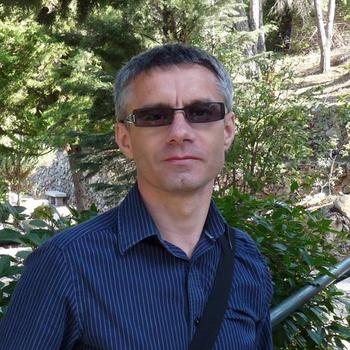Dr. Ion Popa
Ion Popa successfully defended his PhD thesis in December 2013 at the University of Manchester, UK, where he also received his M.A. in Religion and Political Life in 2009. Before starting his DRS Postdoctoral Fellowship at Freie Universität in February 2015, Dr. Popa was a Postdoctoral Fellow at the Yad Vashem International Institute for Holocaust Research, Jerusalem (October 2014-January 2015), and a part-time lecturer in Holocaust Studies at the University of Manchester (2012-2014). He published articles and book reviews in Yad Vashem Studies (2011), European Review of History (2012), Holocaust. Study and Research (2013) and Holocaust and Genocide Studies (2015) and the book manuscript based on his PhD thesis entitled A History of Denial: The Romanian Orthodox Church and the Holocaust, 1938-Present, will be published in 2016 by Indiana University Press. Dr. Popa presented papers at numerous academic conferences in Washington DC, Jerusalem, Bloomington Indiana, Krakow, Leicester and Manchester, including two lectures for the general public on the topic of Jewish-Christian relations at Imperial War Museum North, UK (October 2014) and at Yad Vashem International Institute for Holocaust Research (November 2014). He has been the recipient of several prestigious awards: Yad Vashem Post-Doctoral Fellowship (2014-2015), the Tziporah Wiesel Fellowship at the Centre for Advanced Holocaust Studies, USHMM, Washington DC (2013), University of Manchester/School of Arts Languages and Cultures Award (2012-2013) and the Saul Kagan Claims Conference Advanced Shoah Studies Fellowship, New York (2010-2012).
Title of research project:
The Catholic Church and the Holocaust in Romania, 1938-1948
Focus of research:
The attitude of the Catholic Church in Romania towards the Jewish Community in the context of the Holocaust
Keywords:
Jewish-Christian relations, the Holocaust, church-state and inter-religious relations in Romania and Eastern/South-Eastern Europe.
Regional focus:
Romania, Eastern Europe, South-Eastern Europe
Description:
My postdoctoral project aims to research the attitude of the Catholic Church in Romania towards Jews from 1938 to 1948. I see it as a continuation of my inquiry into the attitude of Eastern European Churches towards the Jewish community during and after the Holocaust. Just before the Second World War, there were 1,234,151 Roman Catholics (6.8% of the population) in Romania, constituting the third largest religious group after Orthodox 13,108,227 (72.6%) and Greek Catholics 1,429,391 (7.9%). Although a minority Church, the Catholic Church had a different relation with the Romanian authorities in comparison to other religions due to the Concordat signed by the Romanian state with the Vatican in 1929. My project has just begun, but most of the documents I already researched showed a contrasting image. While the Romanian Orthodox Church (the majority Church in the country) either encouraged the Ion Antonescu regime’s polices of destruction or was silent at the cries for help of the Jewish community, the Catholic Church in Romania, mostly through the actions of Andrea Cassulo, the papal nuncio to Bucharest (1936-1947), was actively involved in rescue efforts. This contrast between the two Churches was the driving force behind my decision to pursue this topic.
The project has four main objectives:
- To widen the historiography about the Jewish-Christian relations in Romania and South-Eastern Europe in the context of the Holocaust.
- To offer a more comprehensive view of the alleged rescue actions of the Catholic Church in in Romania and Eastern Europe.
- To understand more clearly the attitude of the Catholic Church in Romania towards the Jewish community in the context of inter-religious relations and religious/political diplomacy.
To offer a comprehensive analysis of the controversial topic of Jews’ conversion to Christianity during the Holocaust in Romania.
Monograph:
In Press (expected date 2016): A History of Denial: The Romanian Orthodox Church and the Holocaust, 1938-Present – Indiana University Press
Peer Reviewed Articles:
“Notes on a Communist Trial: the 7th Rosiori Regiment and the Holocaust in Romania and the Soviet Union” – The Journal of Genocide Research. Expected date: 2017
“Reactions of Converted Jews and Their Families to Anti-Semitic Laws, Romania 1940-1942” – The Journal of the Centre for the Study of the History of Jews in Romania. Expected date: 2016
“Sanctuary from the Holocaust? Roman Catholic Conversion of Jews in Romania, Bucharest, 1942” – Holocaust and Genocide Studies, vol. 29, no 1 (Spring 2015), pp. 39-56
“Visarion Puiu, the Former Romanian Orthodox Metropolitan (Archbishop) of Transnistria – A Historical Study on His Life and Activity Before, During and After the Holocaust (1935-1964)” – Holocaust. Study and Research, vol. 5, no 1 (6) (2013), pp. 182-203
“Miron Cristea, The Romanian Orthodox Patriarch: his political and religious influence in deciding the fate of the Romanian Jews (February 1938-March 1939)” – Yad Vashem Studies, vol. 40, no. 2 (2012), pp. 11-34
Book reviews:
“Uta Gerhardt, Thomas Karlauf, eds., The Night of Broken Glass, Eyewitness Accounts of Kristallnacht, translated by Robert Simmons and Nick Somers, Cambridge: Polity Press, 2012” – European Review of History, vol. 20, issue 2 (Spring, 2013), pp. 332-333
“Panteleymon Anastasakis, The Church of Greece under Axis Occupation, Fordham University Press, New York, 2015” – European Review of History, spring 2016





